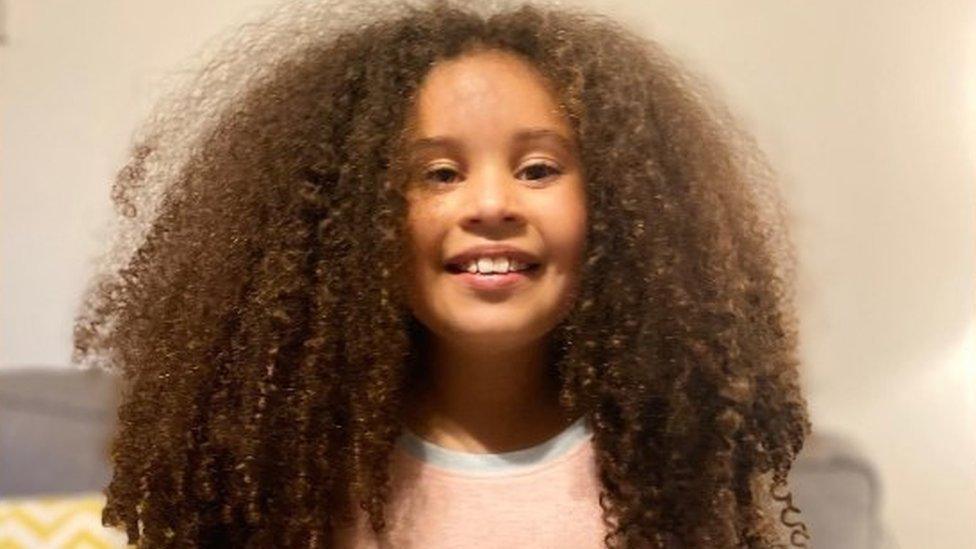St Albans: The dads learning to plait their daughters' hair
- Published
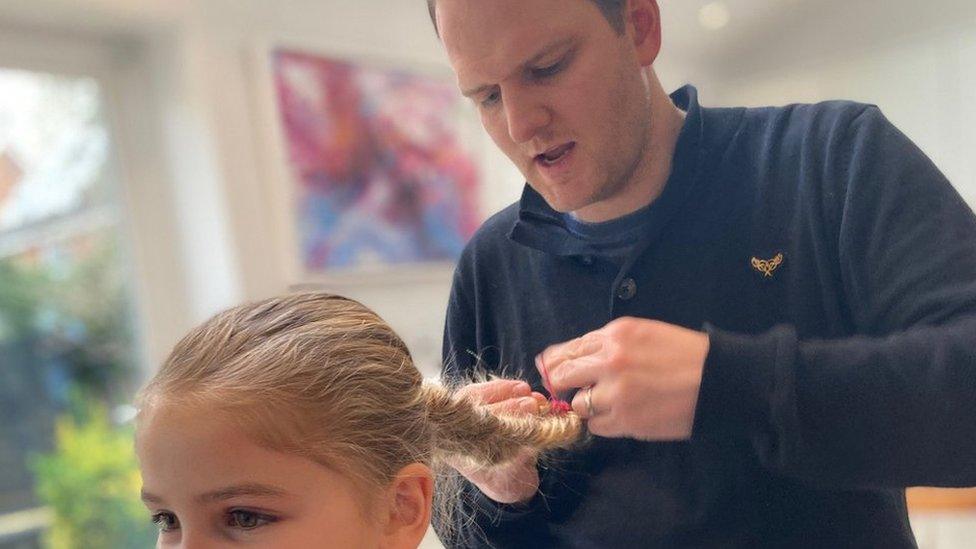
John Hardern says plaiting his daughter's hair shows her that people can "do whatever they want regardless of gender"
When Annis Waugh agreed to do a hair plaiting class for fathers at a school, she could not believe it sold out. There was even a waiting list. We spoke to her and some of the dads who learnt a traditional skill while challenging gender stereotypes.
Annis Waugh, from St Albans-based Braid Maidens, has been plaiting hair since she was a child and began running classes last year.
While men were always welcome in her sessions, none had ever booked on one before.
So she organised separate men's and women's groups as a PTA fundraiser for a local primary school, and was amazed when the men's one sold out when there were still tickets for the women's night.
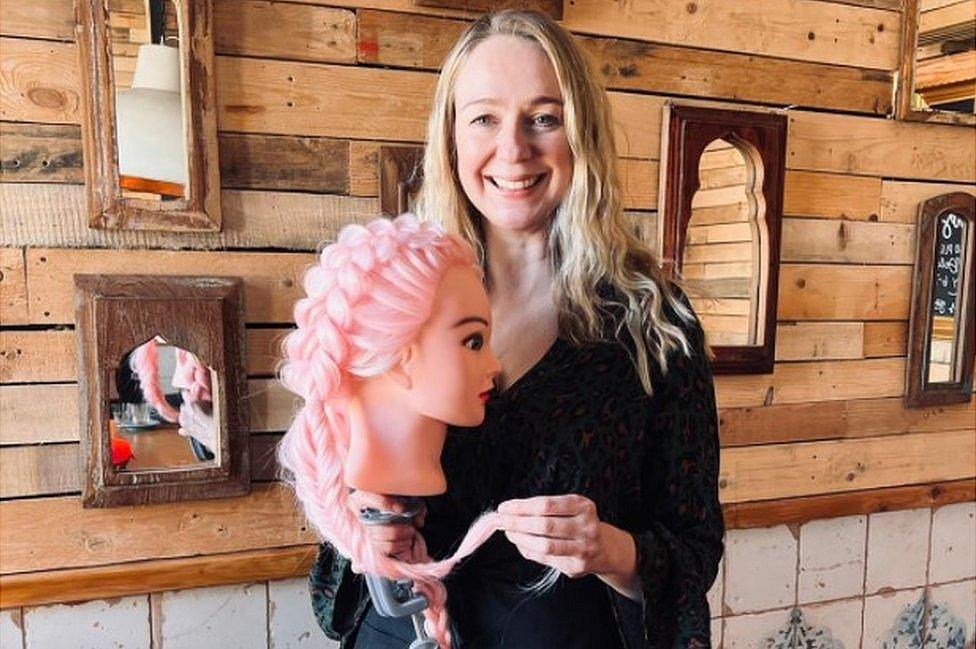
Annis Waugh began running hair plaiting classes last year, but no man had ever booked on one
"The thinking behind having men learning together is that they would all be in the same boat," she says.
"It just made me really happy that they were keen and up for it," she adds. "I don't think that would have been the case 20 to 30 years ago.
"It's 2022 and people co-parent and split things far more down the middle these days.
"Plus, after lockdowns, school runs have changed, dads are around much more in the mornings and if they can do it, it's helpful."
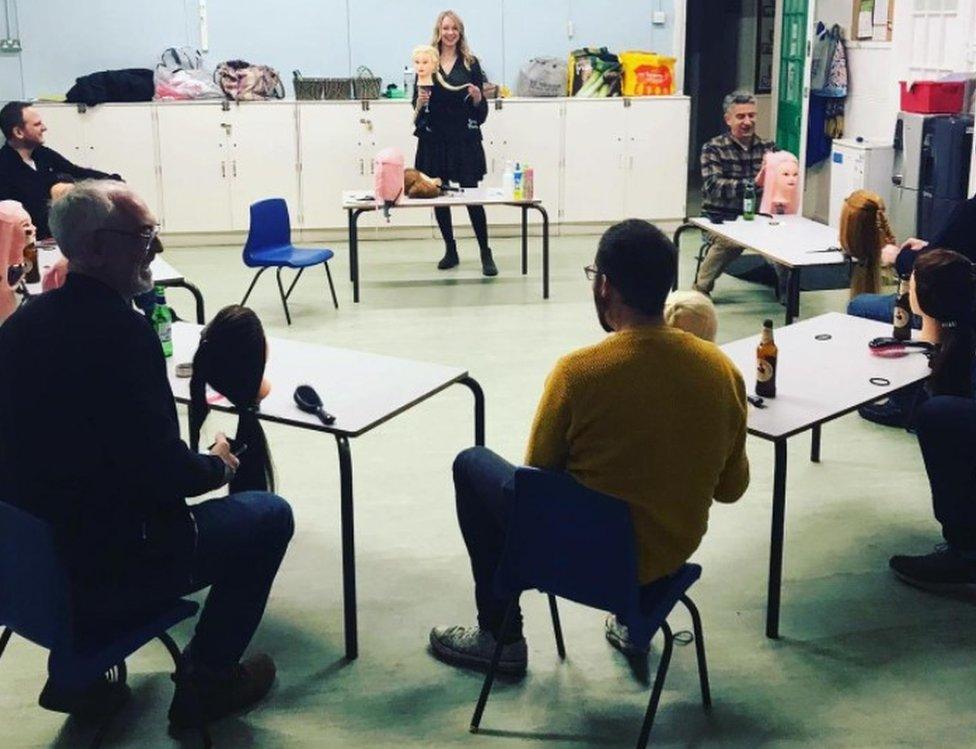
Braid Maidens' class for men sold out and there was a waiting list
She also says many women have told her that some of their nicest memories are of their own fathers doing their hair.
"They have said they were always proud if their dad had done their plait, which is so touching," she says.
"So it's something dads can share with daughters - and their sons if their hair is long."
Ms Waugh adds that for the men, she started with the basics of putting hair in a pony tail and learning how to use elastic bands.
"I don't need to do that in the women's classes," she says, "because, even if they've not plaited before, they're experienced in putting their own hair up in ponytails".
For that reason she kept the styles "more basic", she says, but in the end the men were "disappointed not to be learning the Dutch Braid" - a plait created when the three hair sections are crossed under each other.
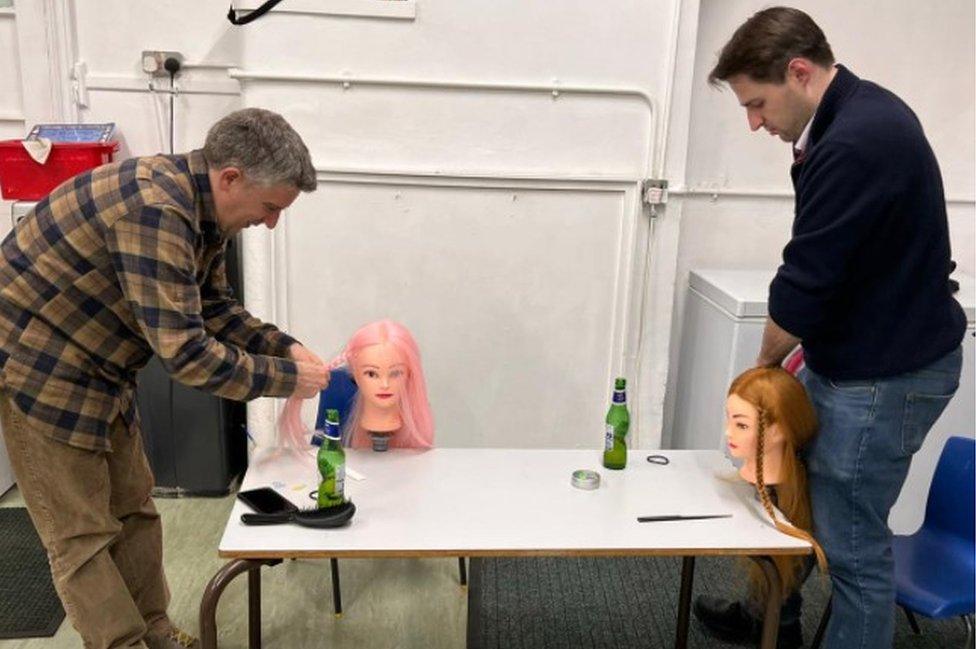
Annis Waugh says she found the men "were harder on themselves" to get it right
"I thought that would be too much in a first session but they could have totally handled it," she says.
"I'd say the only difference that stuck out [when teaching men] was that they were more competitive with themselves to get it right and were harder on themselves.
"I would see perfectly good braids being brushed out and re-started. When I asked why, they said it was because there wasn't enough tension.
"But the main joy for me was that they all wanted to be there and really got into it."
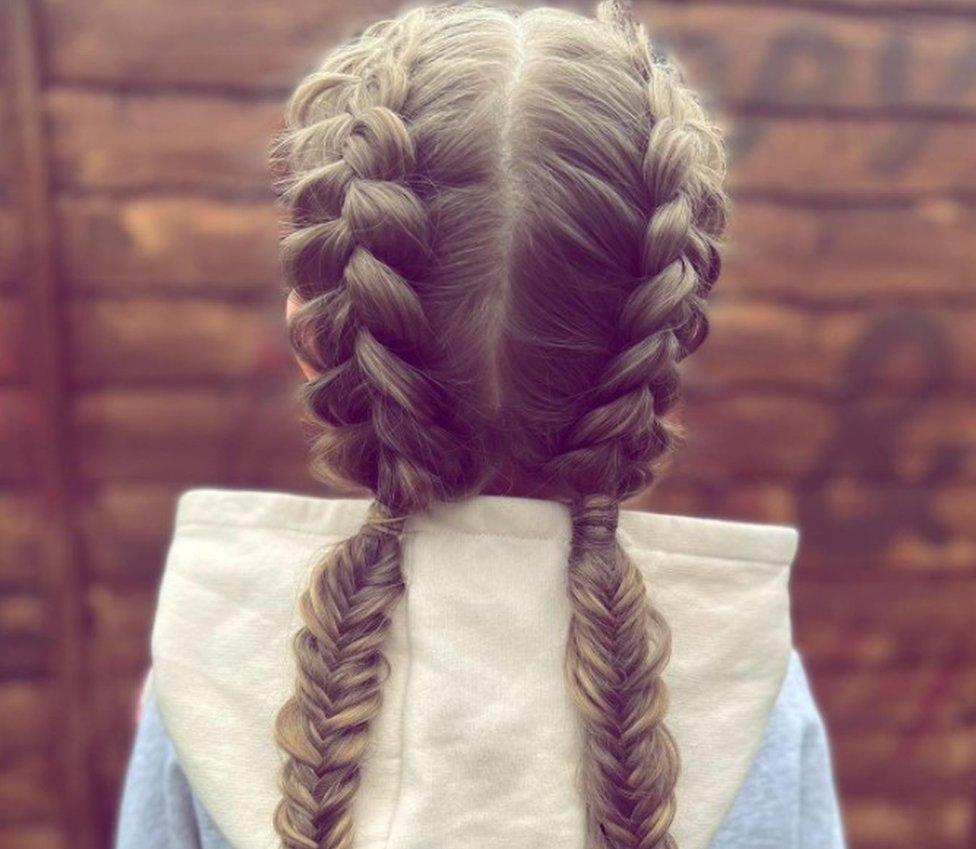
Dutch braids are formed by crossing the three hair sections under each other
Ms Waugh says she enjoys teaching all adults because she "loves watching how people process learning in adulthood. I love seeing their joy when it clicks".
"For me it's about passing on a traditional skill," she says. "I like to see it as my legacy so it doesn't die out."
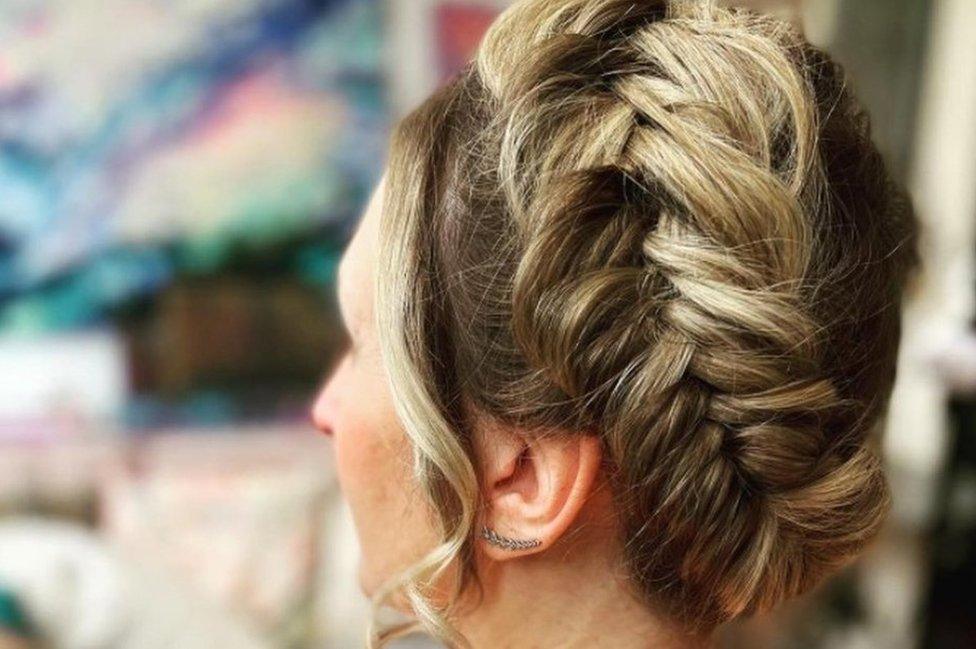
Annis Waugh says teaching plaiting is about passing on a traditional skill

'It shouldn't be weird'
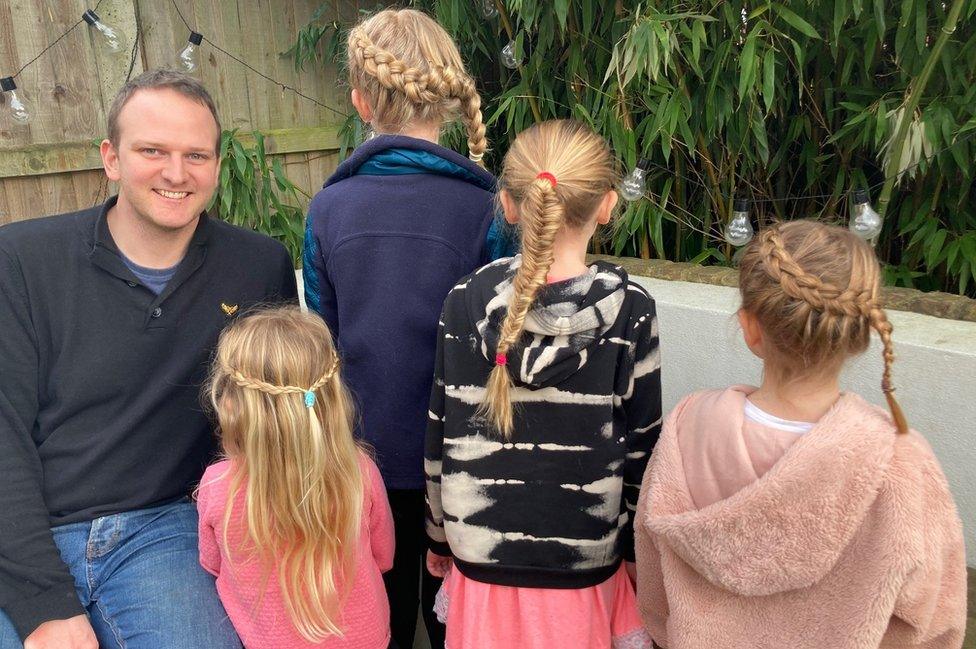
John Hardern, who has four long-haired daughters aged 10, 8, 6, and 4, says it "doesn't matter to them which parent is doing it"
John Hardern has four daughters and when he first heard about the special event for dads he thought it sounded "weird", and questioned why he would want to do it.
But then he immediately wondered why he thought that way, booked on the course and found it "brilliantly surprising".
"I thought, 'Why is it weird, I've got four daughters, why does it feel like I shouldn't go?'"
The pensions adviser says he is "encouraged to think about diversity and flexible working" all the time in his job, so was shocked at his unconscious bias.
"It made me think society has such a long way to go," he says. "When I realised what I was thinking, I thought I'm definitely doing it".
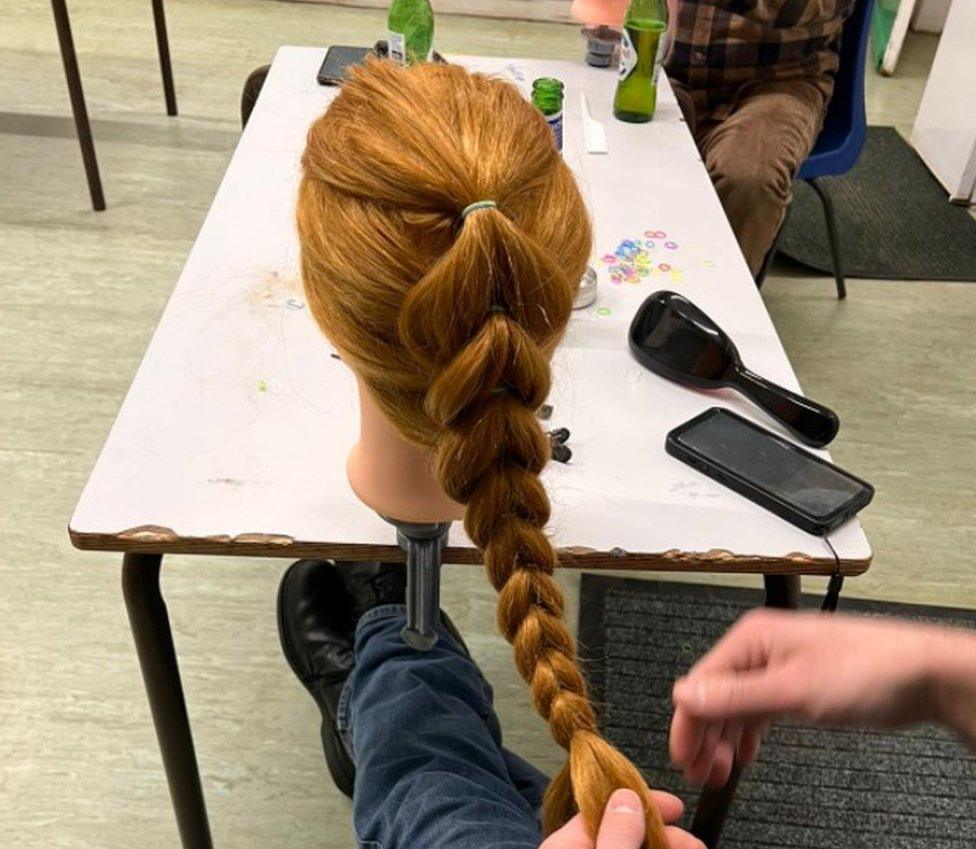
All the men "wanted to be there and really got into it", Ms Waugh says
He adds that learning this skill has also subtly shown his children that people "can do whatever they want regardless of gender".
"I don't want my daughters growing up in a world where they have the old style view that one gender does one thing and another does other things," he says.
"That narrows down the set of options they think is possible for them in life.
"But also, if I'm dropping the kids off at school, I don't want teachers and parents knowing its my day because of their hair. I don't want it to look an absolute shambles."
Mr Hardern says his daughters "don't really bat an eyelid" about him plaiting their hair.
"Occasionally they'll say that mum does it better, which to be fair is completely true, but it really doesn't matter to them which parent is doing it."

'I think more dads should do it'
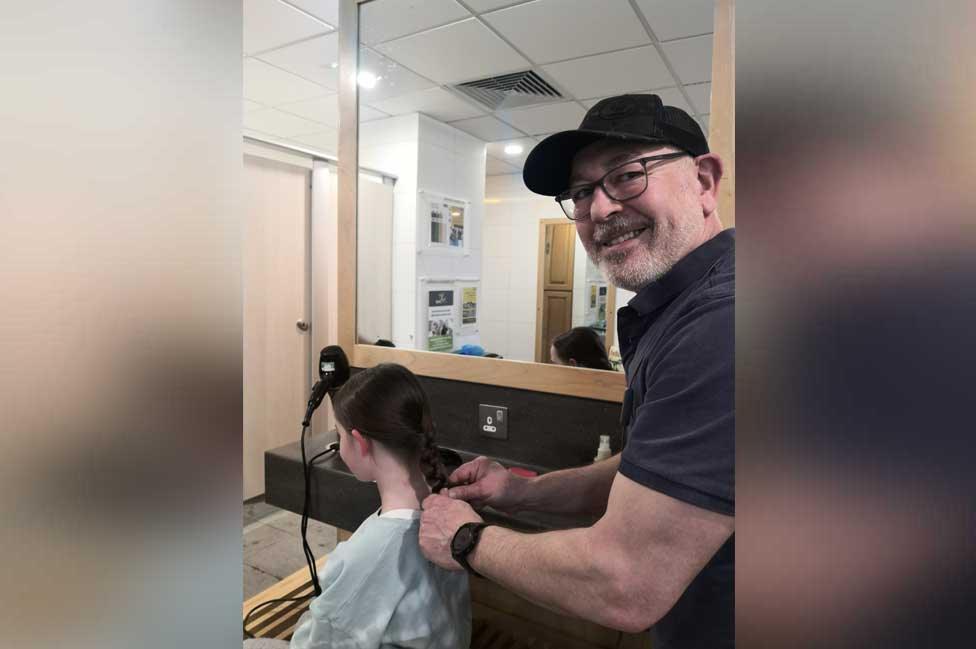
Tim Angove says the "most difficult thing is holding all the different bits of hair"
Tim Angove says his nine-year-old daughter taught herself how to plait from a very young age and "wouldn't let me anywhere near her hair".
"It was very frustrating so when I saw the class come up, I leapt at it," he says.
"I thought, if I can turn round and say, 'I know how to do this', there was a better chance she'd let me because I'm qualified.
"I think more dads should do it," he adds. "It seems to be 100% women [who do the classes], but it's great for dads to have that involvement."
The dad-of-one says he thinks he still would have done the class, even if he was not divorced from his child's mum.
"It has always felt very natural to me to do things with my daughter, so when I saw it advertised I didn't question that it was a male versus female thing," he says.
"It's just something I can do with my daughter and it doesn't matter about gender.
"There's too much stereotyping going on. It's quite frightening when you see it - men only doing the things with sons and women with their daughters.
"It's 100% important for girls to see men doing these things. I run out of patience sometimes with Sylvanian families, but I can embrace this."
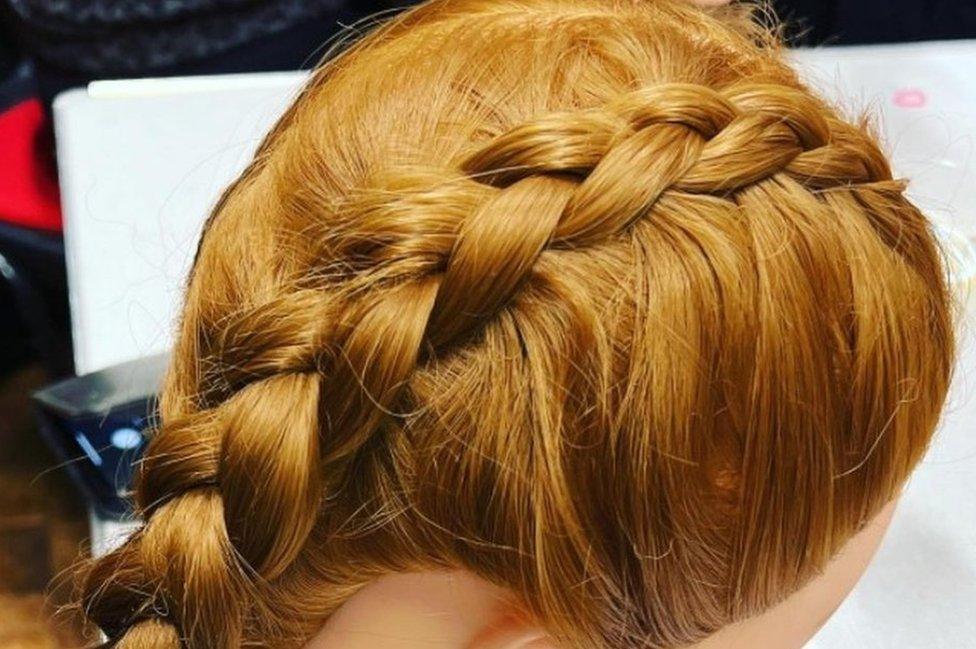
The men were taught basic styles but "could have totally handled" more, Ms Waugh says
Mr Angove says he hopes his "new found skills will come in useful".
"When she first came round, the first thing my daughter said afterwards was, 'So you know all about plaits now', and she was quite excited.
"It is something we can share. I loved it."

Find BBC News: East of England on Facebook, external, Instagram, external and Twitter, external. If you have a story suggestion email eastofenglandnews@bbc.co.uk, external
Related topics
- Published18 March 2022

- Published11 January 2022
